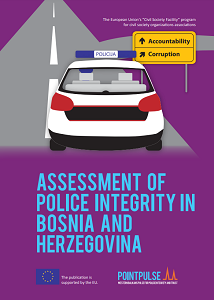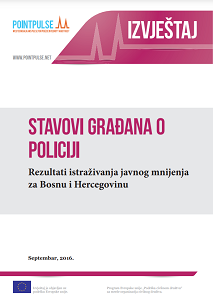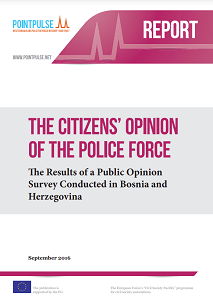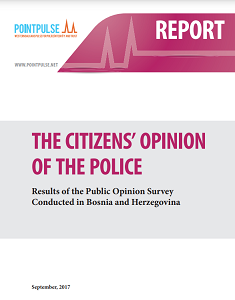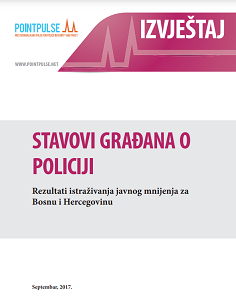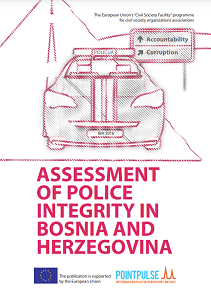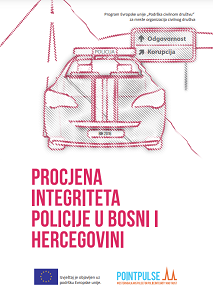The Citizens’ Opinion of the Police - Results of the Public Opinion Survey Conducted in Bosnia and Herzegovina
Author(s): Armin Kržalić / Language(s): English
Keywords: BiH; police; security; public opinion; survey; 2017;
The results of the third round of the public opinion polls reveal alarming data, expressed in a fall of trust and confidence of the citizens in the 12 institutions included in the survey conducted in Bosnia and Herzegovina in 2017 (by an average of 10%). The confidence of the citizens in the police of Bosnia and Herzegovina has experienced a significant decline in relation to the second round of research (conducted in 2016). In BiH, the percentage of those who trust the police first fell from the initial 54% in the first round of 2015, then rose to 60% (in 2016), only to fall again to 47% in the third round. The difference between the second and third rounds is a significant 13%. The trend of using positive adjectives when describing policewomen who happen to be in direct contact with the citizens continued in the third round of research (2017). In the third round, the percentage of respondents who described policewomen as polite, cordial and pleasant rose to (24%), while the second most frequent response, describing them as pretty, good looking and charming, fell by 4%. As regards the best description of a male police officer, the percentage of respondents who in this round of research described policemen in BiH as polite, cultured and pleasant (13%) is almost identical to that from the previous round. Also, the same percentage of respondents described police officers as mostly serious, responsible and aware of the work that they do. There is quite a difference between the description of male and female police officers. As opposed to policewomen, respondents describe policemen as less polite and less pleasant. Also unlike policewomen, policemen are percieved as dishonest, arrogant and aggressive. The largest statistical difference between male and female police officers was noted in the description relating to corruption. Thus, 12% of the respondents described policemen as persons who can be easily corrupt, while the percentage is considerably lower when it comes to policewomen (2%). According to the citizens, one of the biggest problems in this area is the high level of influence of politicians on police work. Therefore, the largest percentage of the respondents believes that the police in BiH act the least as a service to the citizens - 61% (the first round - 67%, the second round - 51%, the third round - 66%), and that they mostly operate as a means of protecting the interests of political parties - 30% (the first round - 33%, the second round - 28%, the third round - 30%). The police are perceived as a means of protecting the interests of political parties, and not as a service to the citizens. Citizens believe that corruption is widespread in the police force, but when we examine specific parts of it we can see that this opinion varies, and that it mainly applies to the traffic police, the border police, and the closest associates of th Minister of Interior. Stable findings show that half the citizens of Bosnia and Herzegovina believe that the selection of candidates and employment in the police are carried out in a dishonest manner, either through friends or family connections: 52% (the first round - 49%, the second round - 54%, and the third round - 53%). There is a small number of citizens who say that they would report a case of corruption in the police if an opprotunity presented itself. Such a position best illustrates the public perception of police work, that is, the citizens' disappointment and lack of interest in it. The results obtained after the third round of research regarding the role of non-governmental organisations in the fight against corruption show growth in the percentage of respondents who see the role of non-governmental organisations in direct participation.
More...
